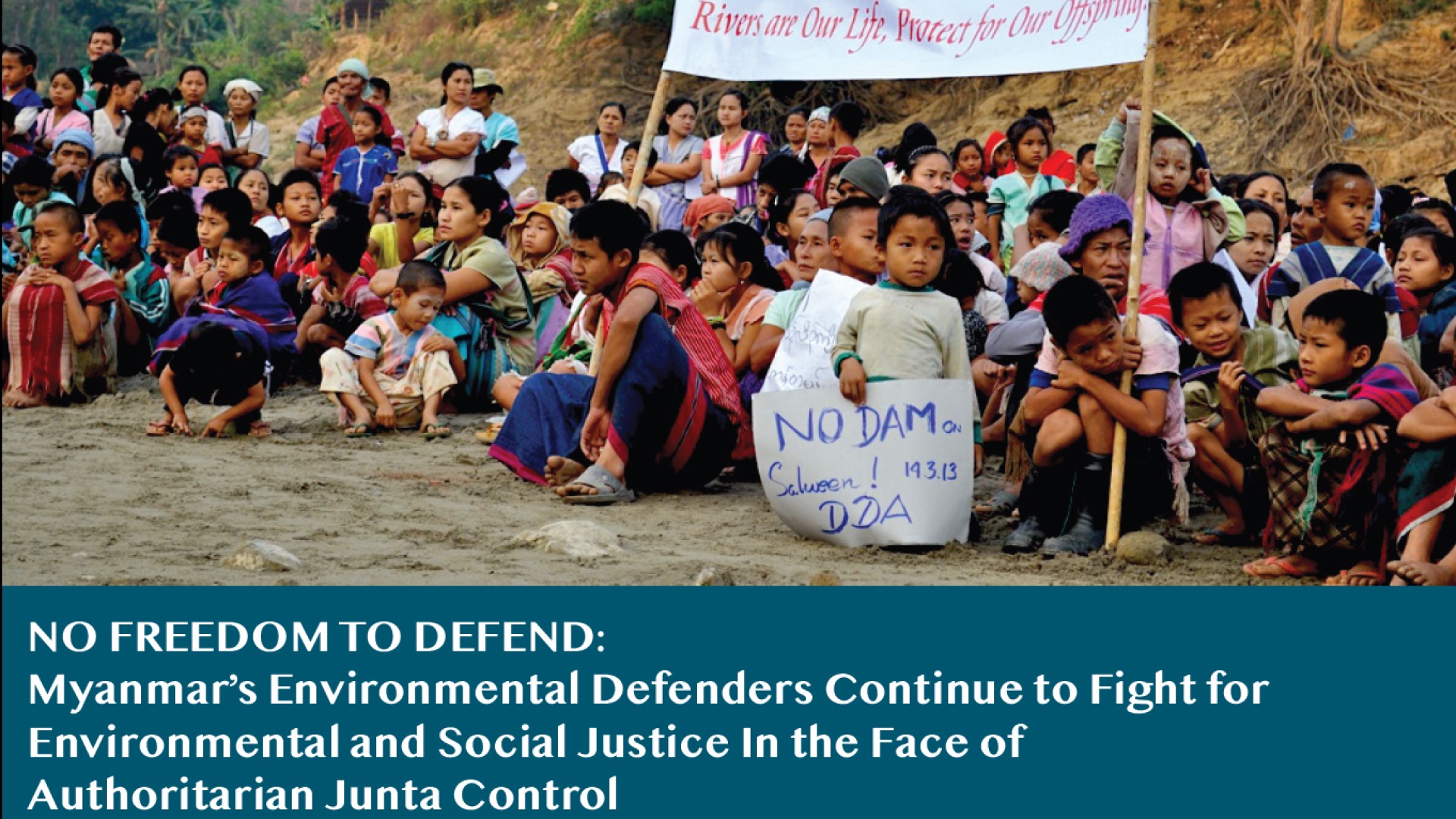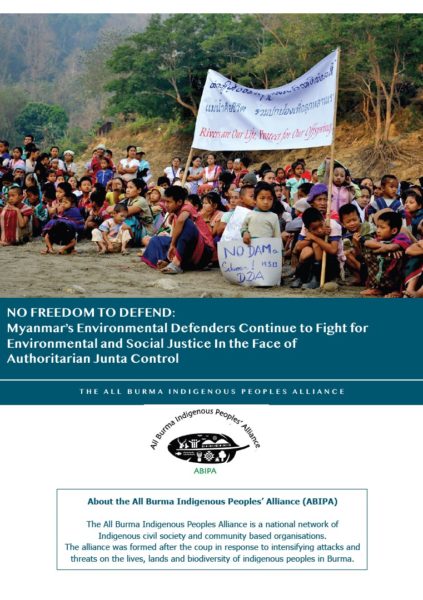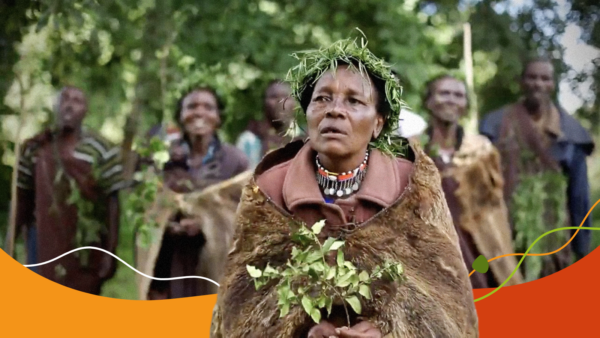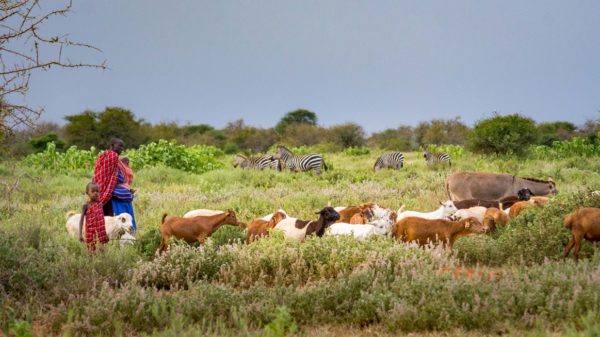The report published by the “All Burma Indigenous Peoples’ Alliance (ABIPA)” illustrate the state of environmental human rights in Myanmar and the strategies pursued by the defenders in the face of violent crackdowns by the military rulers
First published on 07/21/2023, and last updated on 07/31/2023
Written by Esther Wah (Karen)
Secretary, All Burma Indigenous Peoples Alliance (ABIPA); and
Honorary member, ICCA Consortium
In Myanmar, blessed with diverse landscapes and cultures, a group of resilient individuals rises to protect the environment and human rights.
Under the continuous atrocities and destruction by the military junta since the 2021 military coup, the future of Myanmar’s people, lands, forests, and biodiversity hangs in the balance. People have been displaced, arrested, and killed in the armed conflict across the country. Illicit mining operations have proliferated, destroying forests, unearthing mountains, and polluting surrounding rivers and streams.
However, in the face of growing authoritarianism and rapid destruction of Myanmar’s environment and natural resources, Indigenous and local environmental human rights defenders (EHRDs) continue to fight to protect their lands, forests, rivers, and biodiversity.
Against political and social challenges, Myanmar’s environmental defenders have dedicated their lives to safeguarding the natural world and advocating for social justice. Despite mounting challenges, the Indigenous Peoples all over the country, including in the Salween peace park, Thawthi Taw Oo, and Tanawtheri, continue to protect, sustain and strengthen ICCAs–territories of life.
The latest state of environmental human rights in Myanmar and the strategies pursued by the defenders in the face of significant challenges have been illustrated by the All Burma Indigenous Peoples’ Alliance (ABIPA) in a recently published report. The nineteen-page report titled “No Freedom to Defend: Myanmar’s Environmental Defenders Continue to Fight for Environmental and Social Justice in the Face of Authoritarian Junta” was published in May 2023.
Indigenous, Local communities, and environmental defenders that continue to protect and defend their lands, forests, and rivers from exploitation and destruction have come under extreme danger in the current situation in Myanmar. Introducing a new set of repressive laws by the junta means that citizens’ freedom and privacy have been curtailed, and those suspected of engaging in environmental and human rights protection activities can be quickly detained.
Faced with enormous challenges, environmental defenders are making considerable sacrifices to continue protecting their areas and territories. Environmental defenders that continue to fight for their lands do so in the knowledge that their or their family’s safety could be jeopardized at any time. Some have had to separate from their families to protect them, and others are facing extreme levels of depression due to the gravity of the situation.
Environmental defenders also report that a growing network of checkpoints operated by the military’s State Administration Council (SAC) or other armed actors, particularly around areas where high-value resources are being extracted, has made it increasingly difficult to carry out their work. Defenders and community members are regularly interrogated and searched at checkpoints, making traveling between communities extremely difficult.
A growing number of environmental defenders now languish in prison, facing extensive jail sentences under false charges, or have had to go into hiding, taking refuge in the forests, borderlands, or neighboring countries for safety.
Despite the enormity of these threats, communities and environmental defenders have continued to fight to protect, sustain and strengthen their lands, forests, and communities from threats of militarization, resource exploitation, and ecological degradation.
While civil society groups and networks have had to either disband, go underground or scale back their operations, community-based organizations and activists report that it is challenging to organize and that many are fearful of conducting conservation activities in the forest as they had done in the past. Environmental defenders have had to try and adapt new ways to work, using new tactics and approaches to meet with communities, collect data, and protect forests and biodiversity from plunder.
Defenders also face severe psychological well-being issues, including depression, breakdowns, and suicide attempts. Recurring dreams and hallucinations of being followed, arrested, and shot haunt many, and many have sought help from counselors despite limited availability.
Myanmar’s EHRDs stand at the forefront of global struggles against the onset of climate change and biodiversity extinction. As the coup has created a situation in which resources are being rapidly unearthed and the environment degraded, the work of environmental defenders has never been so critical. Despite the vital importance of environmental defenders and the unprecedented challenges, many continue to be under-resourced and under-supported.
We are the guardians of Myanmar’s natural heritage, our home, and life, and we are committed to protecting it for future generations. Our fight is not only for the environment but for justice, equality, and a better future for all. We need your support to amplify our voices and create meaningful change in Myanmar. Communities protesting against expanding rare earth mining to those continuing to campaign for free-flowing rivers, environmental defenders need more significant regional and global support to protect Myanmar’s remaining forests, rivers, land, and biodiversity from destruction, degradation, and plunder.
We call on donors, international organizations, and international governmental agencies to recognize the enormous role that environmental defenders play in protecting our planet’s remaining rich biodiversity from capture and destruction by some of the world’s most brutal regimes.
Together, we can bolster the efforts of Myanmar’s environmental defenders and protect the natural wonders that make this nation so extraordinary. Together, we can shape a future where the environment thrives, human rights are upheld, and Myanmar’s vibrate heritage is preserved. Together, we can be the force that transforms lives and protect the planet.




